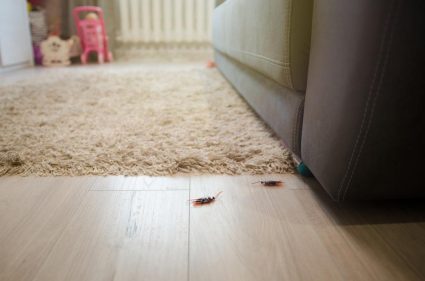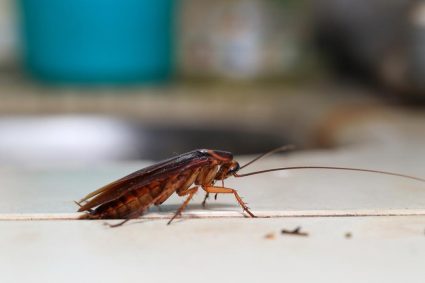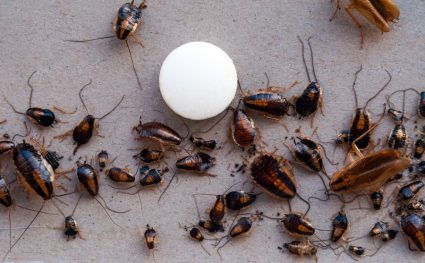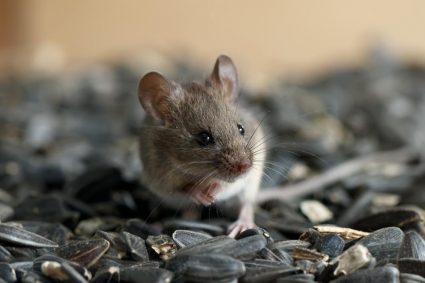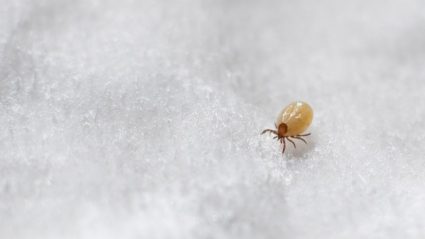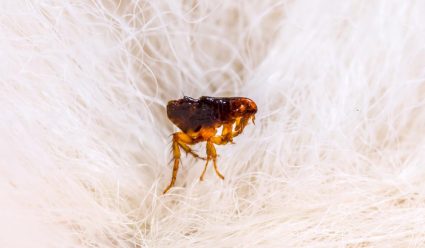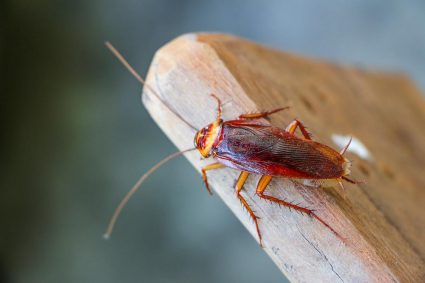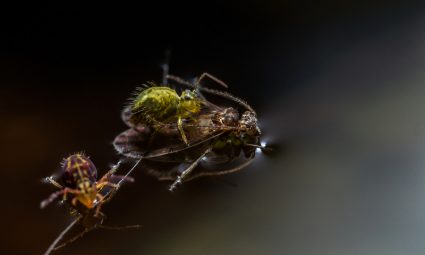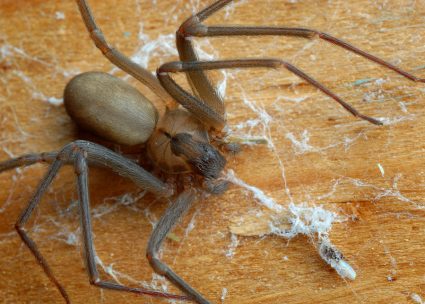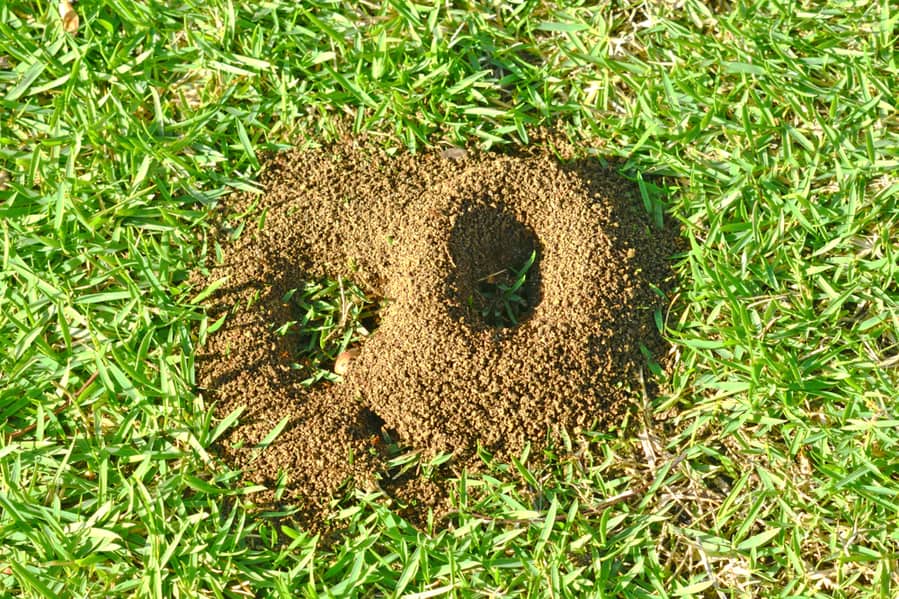
Ants invading your lawn can probably be one of the worst things that could happen to you.
Aside from possibly getting itchy ant bites, they can destroy your lawn’s overall landscape when creating their ant hills. Not to mention that ants can also destroy plants, steal seeds, eat fruit pulps, and more.
If you don’t perform preventive measures to get rid of these ants, you can be looking at increasing ant infestations, which could destroy the overall appearance of your lawn.
Generally, there are two primary ways to keep ants out of lawns and eliminate their infestations: natural products or chemical substances.
If you ask which should be the better solution, always remember that natural products are less toxic and safer for the environment. But there’s a possibility that products with chemical substances can work better and be more effective.
Better choosing depends on the severity of your property’s ant infestation, your budget, and how big your lawns are.
Why do ants love invading your lawns, and what can you do? This guide explores all you should know about ants’ behavior and various ways to keep them out.
How Ants’ Behavior Can Affect Your Lawn
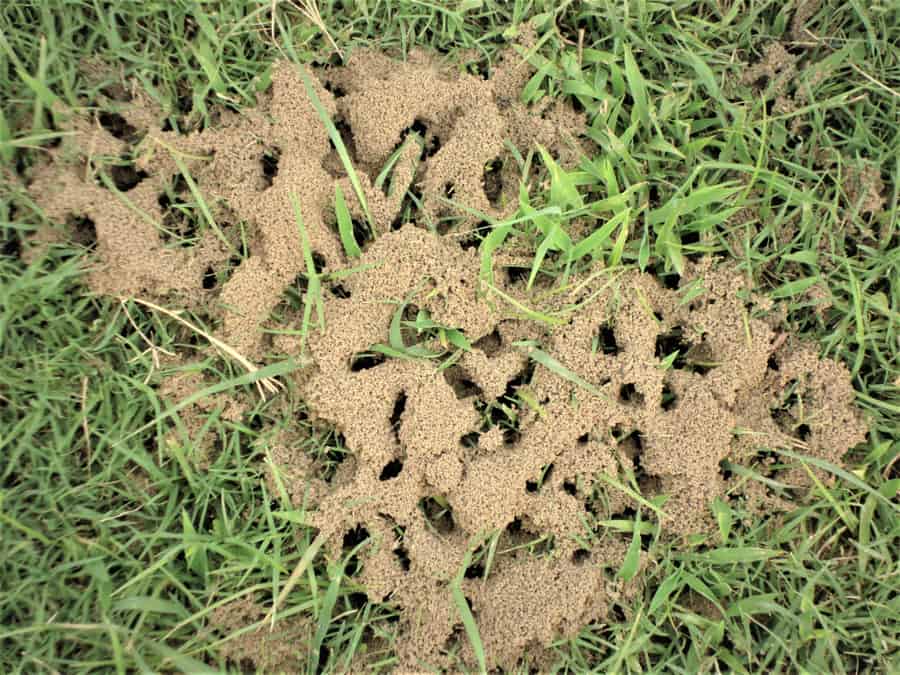
Knowing what works also means you should be familiar with how ants behave when approaching your lawn or any part of your property. Even though ants are very tiny pests, they can form large and organized colonies.
Moreover, ants are fond of creating complex nests with thousands of species.
Inside ant nests are several Queen Ants, fertile female ants that lay eggs in Brood Chambers.
Aside from the Queen Ants, there are other members of the nests, including the following:
- Drones and Soldiers are responsible for looking for food and bringing it to the Queen Ants.
- Worker Ants are responsible for the safekeeping and protection of the nest.
Ant nests also have nursery rooms where you will see how ant larvae are protected and fed. And there are also farming rooms and places designated for food storage. Tunnels are also apparent to maintain the nests’ airflow.
Because of the complexity of ant nests, these creatures need areas that can be safe and hidden from humans. It’s also why ants love building their nests under lawns.
These areas consist of well-drained soil, which is suitable compared to compact soil. And because almost all lawns have this type of soil, even the cleanest and healthiest can be invaded by ants.
If there’s a benefit you can get from this, ants can hunt insects and kill them. Plus, their nests are also great for lawn aeration.
However, the cons outweigh these benefits. Leaving ant hills in your lawns can cause the following:
- Uneven lawn surfaces.
- Affect grass-mowing because the nests can make the mower blades stuck on soil lumps.
- Unhealthy for the grass and can potentially kill them.
- Build their colonies by eating the grass’s root zone, increasing dead grasses.
So, if you don’t do anything about these ant invasions immediately, your lawn will be destroyed in no time.
Getting Rid of Ants Using Natural Products
Using chemicals should be your last resort to becoming as friendly to the environment as possible. You’ll be surprised to know that there are several ways you can keep ants out of your lawns using non-toxic and natural, and eco-friendly remedies.
Let’s look at your options below:
1. Boiling Water
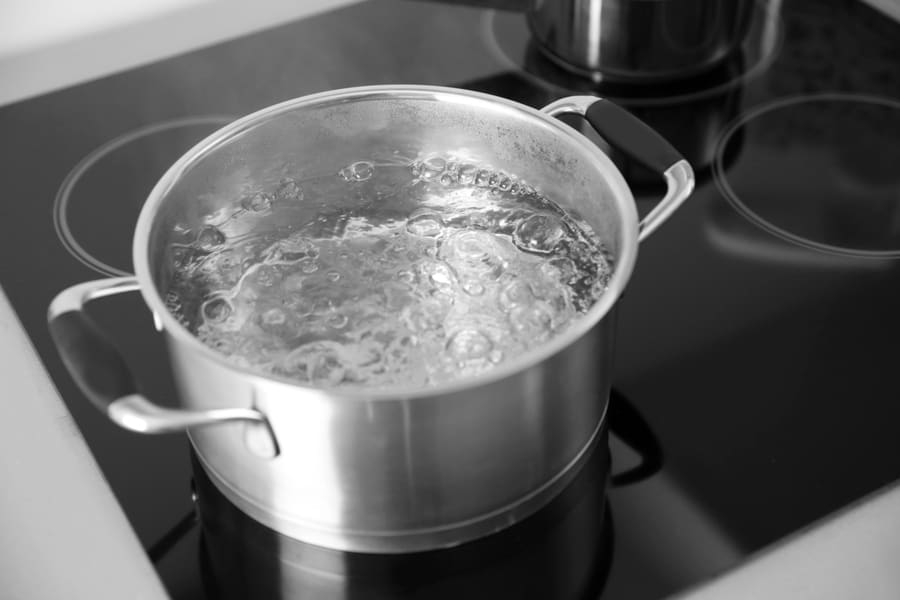
Boiling water is a natural home remedy that has been proven effective in destroying ant nests and killing all the ant species inside.
One thing to know about boiling water is that it instantly cools down underground, so it’s possible that it won’t reach the colonies’ deepest parts, including the queen ants. But the water’s temperature is still hot enough to kill any ant that comes in contact with it.
To use boiling water, this step-by-step guide should work:
- First, get a large pot and fill it with water for boiling.
- Next, by using a rake, disturb the area directly above the anthill to gain access to the underground nest.
- While taking caution to avoid burning yourself, pour the boiling water directly into the ant nest. Make sure enough water is going down the hole you created.
- Perform this regularly, at least thrice a week, until you observe that the ant problems have started to decrease or stopped.
2. Baking Soda or Baby Powder
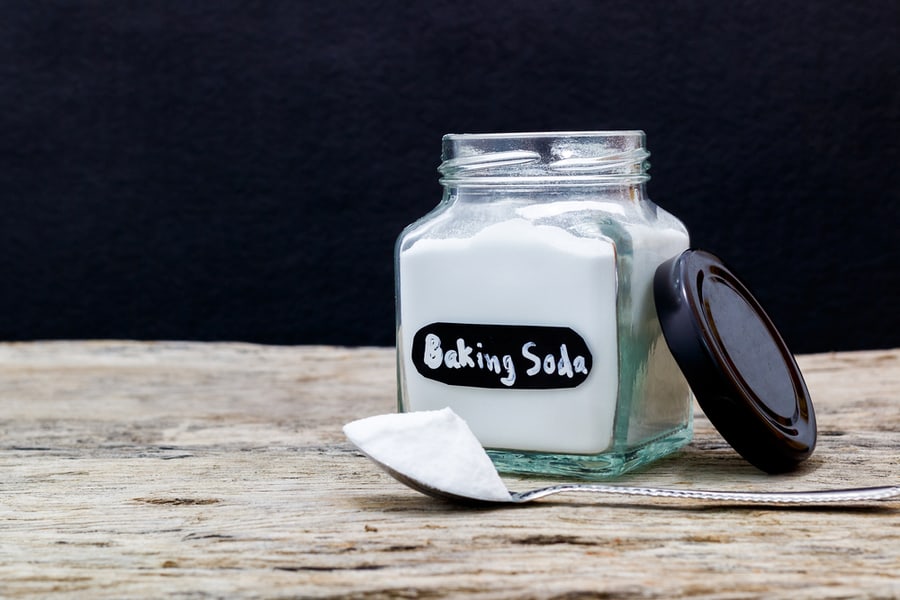
Baking soda or baby powder works because their fine particles are the perfect size to clog the spiracles of ant species.
These spiracles are essential because they are pores in the ants’ exoskeletons to help them breathe. If you clog these pores, ants get suffocated and die.
Aside from clogging the spiracles, baking soda can also create a chemical reaction when ants ingest them. This could automatically kill the pest.
Moreover, when ants try to carry the baking soda bait back to their colonies, it could potentially kill more ants, if not the entire colony.
To use baking soda/baking powder, the simple guide below should work:
- But first, sprinkle baby powder or baking soda particles around ant nests, along ant trails, and inside anthills.
- If you’re using it as bait, mix equal parts of powdered sugar and baking soda. Place the mixture on a shallow lid or dish near ant nests.
3. White Vinegar
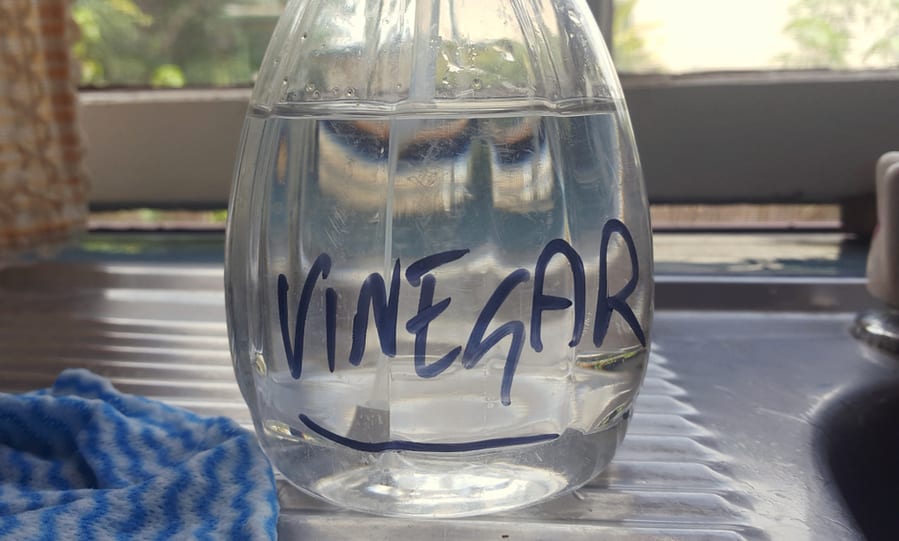
Unlike baking soda and boiling water, white vinegar will not instantly kill ants and destroy ant nests. But because of its intense smell, this seasoning can confuse ants because it disturbs pheromones these species need for communication and directions to hunt for food and bring it back to their nests.
When ants accidentally smell vinegar, they try to escape and keep away from your lawn.
To use white vinegar:
- Mix equal amounts of water and white Vinegar.
- Place the mixture in a spray bottle and spray your entire lawn, especially areas where potential ant trails can be created.
- You can also pour the mixture into the underground ant nests.
4. Olive Oil and Dishwashing Liquid
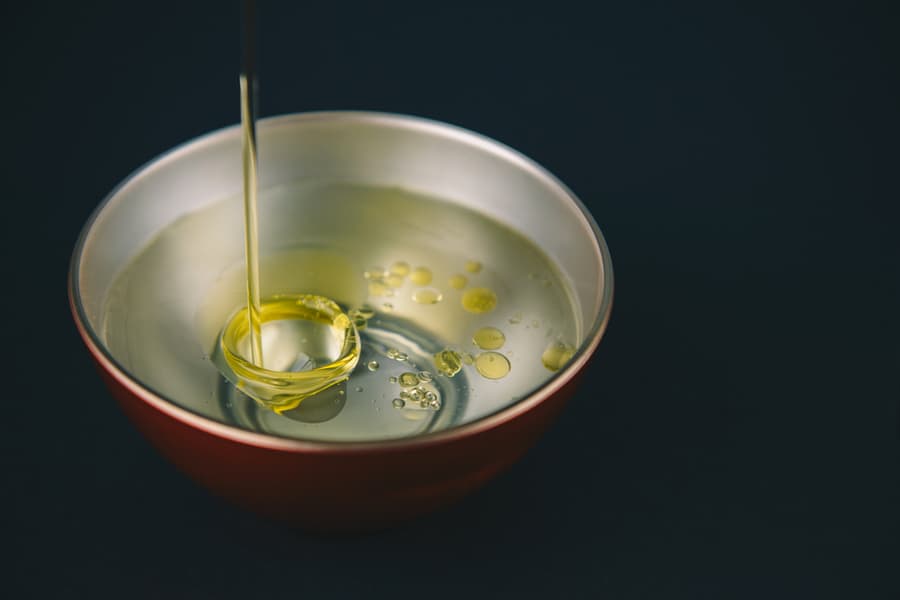
Like baking soda and baby powder, the water and olive oil mixture also works to suffocate the ants to death. In addition, the mixture can penetrate the animals’ exoskeletons and clog the spiracles.
However, for this product, you must be patient while waiting for the mixture to kill the ants and destroy their colonies effectively.
Moreover, don’t be alarmed when you see the grass around the area where you applied the mixture to be paler than usual. Dishwashing liquid contains bleach, which can cause the color fading of the grass.
You only need to mix equal amounts of olive oil, dishwashing liquid and spray around the lawn and underneath the grasses.
5. Borax or Boric Acid
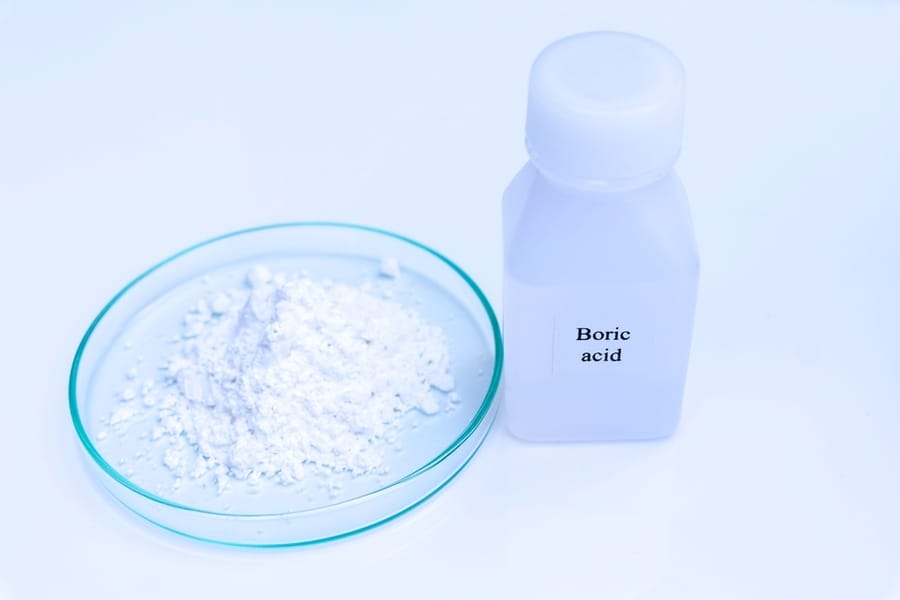
Borax or boric acid has always been effective in killing various pests, including ants. However, when used as bait, boric acid or borax can disrupt the digestive system of the ants, which can eventually lead to their death.
Therefore, we suggest mixing boric acid with sugar, peanut butter, or anything sweet to become an effective bait.
After creating the mixture, you can place it anywhere where you can see ant trails or next to anthills. You can expect ants to die immediately after encountering the bait.
Getting Rid of Ants Using Chemical Products
If you feel the natural ways won’t work, you can always resort to using products with chemical substances. These usually come in insecticides or commercial baits, which work effectively.
One tip, however, is that always check the ingredients before getting one from the market. For example, some insecticides or commercial baits contain why too many toxic ingredients that might not already be good for your lawns.
Moreover, we suggest always checking the manufacturer’s instructions on using these products. This ensures you’re using them properly so that they will be effective in getting rid of ants and anthills.
It’s also better to scrape off and cut the grasses directly above the area of the ant nests, where you’ll use the insecticides to ensure maximum effectiveness.
Always Protect Your Lawns From Ants
Ants can be tiny, but they impact your lawns negatively. This is why you must perform all preventive measures to protect your house’s landscape and keep the plants and grasses safe.
The next time you suspect an incoming ant infestation, come back to our guide, and you’ll be able to overcome these pests in no time.
Frequently Asked Questions
Can Diatomaceous Earth Works Against Ant Invasions?
Diatomaceous earth is also a natural product you can use to get rid of ant invasions and destroy their colonies. Moreover, it’s non-toxic, even to pets and humans.
One unique thing about this substance is that the powder particles are razor-sharp, which can instantly kill ants and other pests.
What Are the Most Common Types of Ants That Can Destroy the Grass?
While all types of ants can potentially damage your lawn, the most common species of ants that can destroy the grass are army ants, farming ants, and field ants.
But the good news is that any kind of product that works for one specie of ant is also effective against these types of ants.

